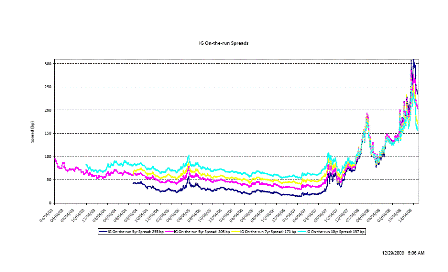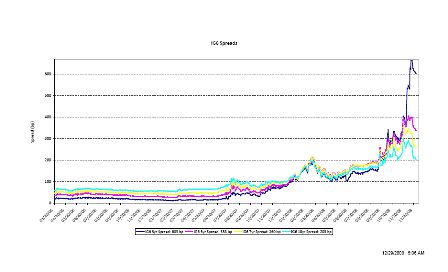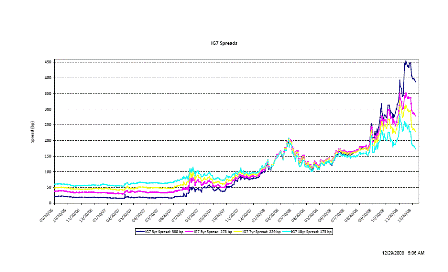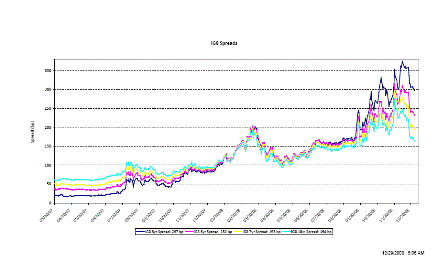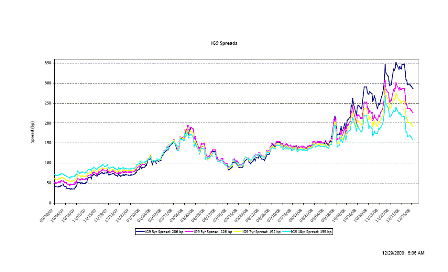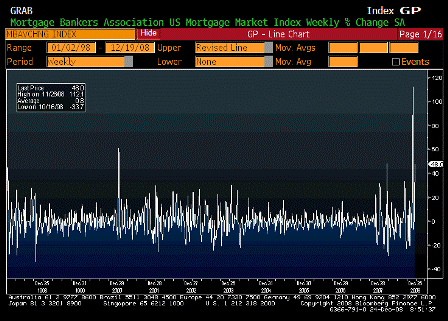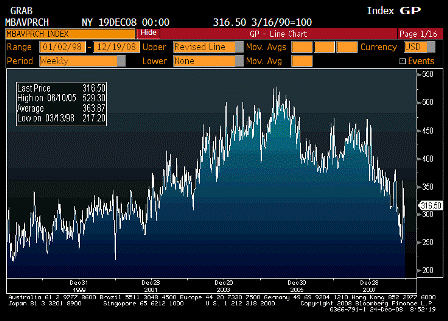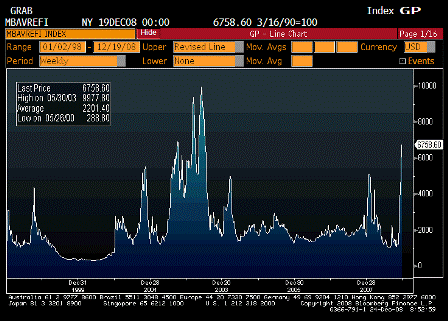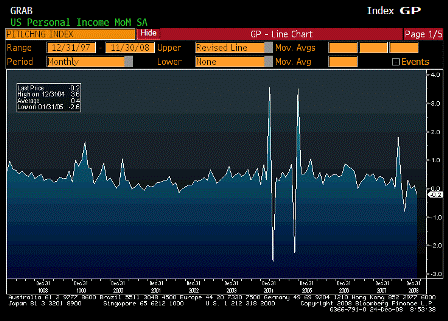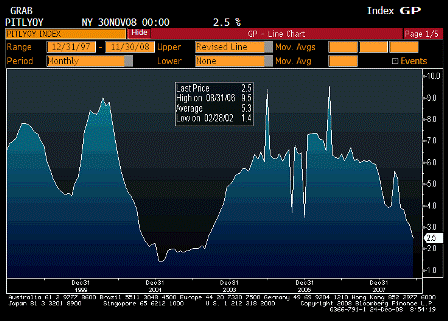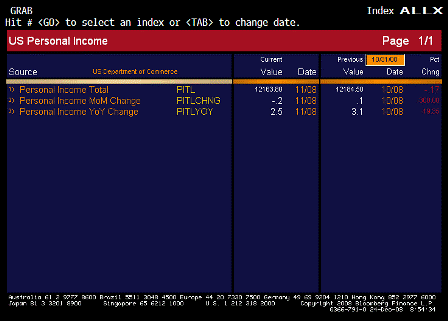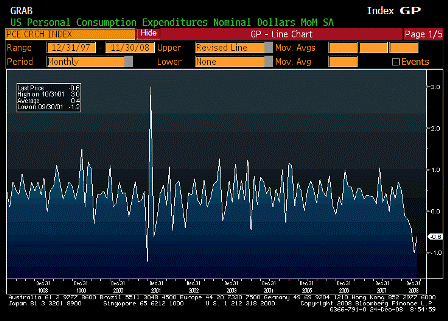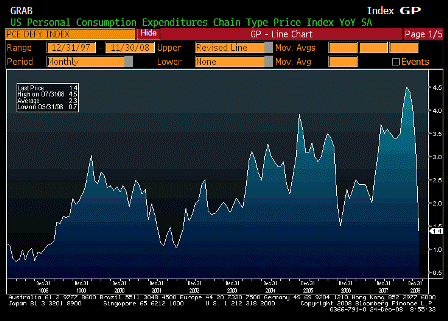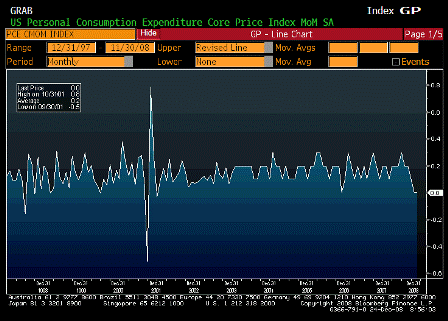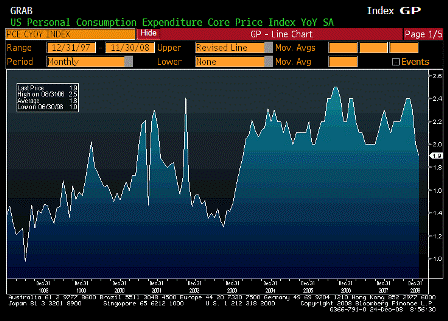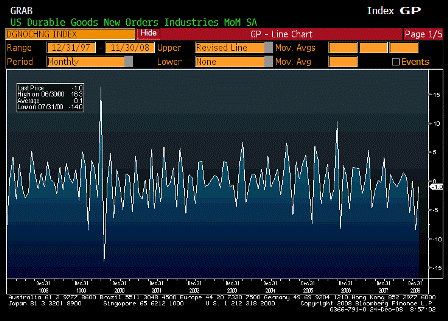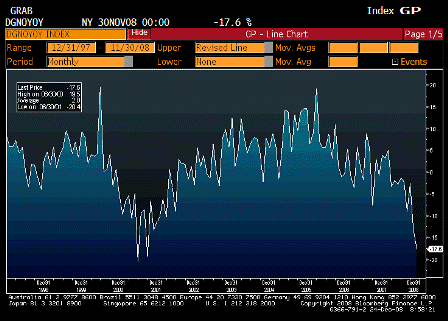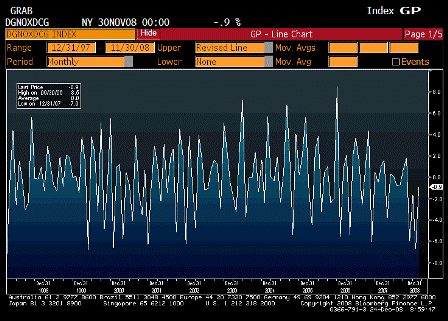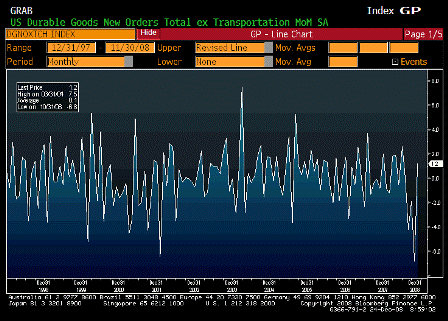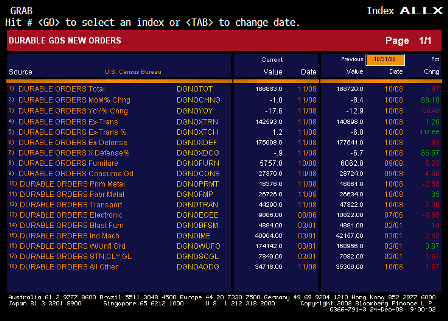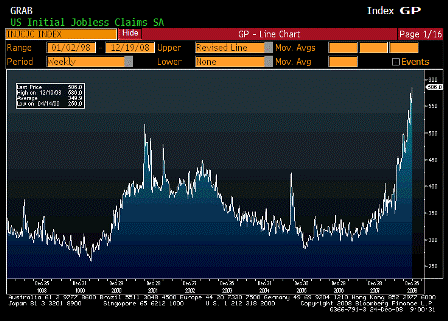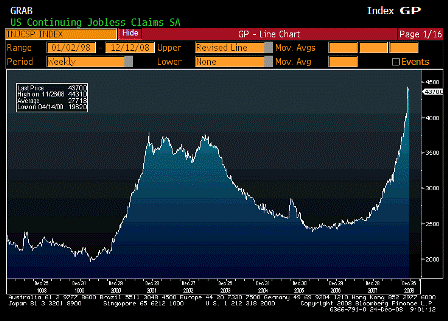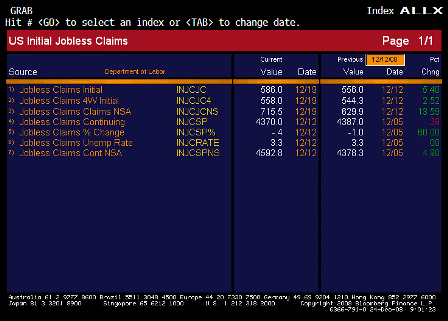[Skip to the end]
Karim writes:
Last data before 12/30
- Mtge apps up 48% last week (MBA reports record 83% of households looking to refi). Refi apps up 48.4% on the week, purchases 10.6%.
Lower interest rates now starting to help this sector, but at the expense of interest income for others. Much of this is offset by government, however, as the deficit continues to rise counter cyclically (the ugly way- lower revenues and higher transfer payments).
- Initial claims rise 30k to new cycle high (and highest since 1982) of 586k; continuing claims drop 17k to 4370k
This may get a lot worse after the holidays.
- Core PCE unch m/m and up 1.9% y/y (core inflation down 0.5% in 3mths; so much for the flat Philips curve).
Yes, but not all that big a move for a negative 7% quarter and a 70% drop in crude oil and large declines in other commodities.
- Personal income down 0.2%, with wage and salary income down 0.1%.
Lower interest income biting.
- Savings rate up to 2.8% from 0.8% 3mths ago
It’s not so much that people are saving as it is they are not borrowing, as total mortgage and other credit measures decline.
- Personal spending down 0.6% m/m
Less than expected as lower fuel prices seem to be helping some.
- Durable goods orders -1% (prior month revised from -6.2% to -8.4%) and up 4.7% ex-aircraft and defense (this measure was down 12.3% in prior 3mths so correction was expected).
- Shipments (key for current qtr growth) down 2.6%
Falling fuel prices and automatic stabilizers increasing the federal deficit are beginning to have an effect, but this is a long, drawn out process that in the past has taken years to restore output and employment.
A full payroll tax holiday and maybe $300 billion in Federal revenue sharing with the states can cut that time frame down to months rather than years.
And, of course, without a plan to cut crude oil product consumption fuel prices can likewise quickly elevate.
The Fed is still obstructing bank functioning by demanding collateral from member banks when it lends. This is redundant and should be addressed at once.
Also, the Fed swap lines to foreign CB’s are again rising and approaching $700 billion. Not sure how this ends. Lines are scheduled to end in April, but hard to see this happening. It could turn out to be the largest international fiscal transfer of all time.
[top]
